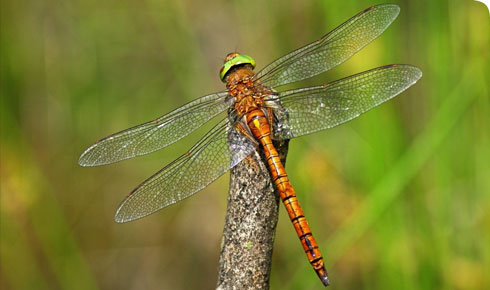Aeshna isosceles (Norfolk hawker)
This dragonfly is restricted to one area of Britain - the broads district of Norfolk. It has been scarce and local in Britain since records began.
It is now categorised as endangered in Britain and is listed in schedule 5 of the Wildlife and Countryside Act 1981.
In Britain, this endangered species of dragonfly is found only around the Norfolk Broads, but it is also found in other parts of Europe and North Africa. In Norfolk, it prefers to live close to waterways where the water soldier plant - Stratiotes aloides grows. Its name Aeshna isosceles relates to a distinctive triangular marking on its abdomen.
Species detail
-

Taxonomy
Find out how Aeshna isosceles, the Norfolk hawker dragonfly, can be distinguished from its close relative Aeshna grandis, the brown hawker.
-

Distribution
This dragonfly is found throughout central and southern Europe but only in localised areas in northern Europe - in Britain it is restricted to Norfolk. It has also been found in North Africa.
-

Biology
The Norfolk hawker prefers waters where the water soldier Stratiotes aloides grows. Find out where.
-

Conservation
In Britain, the Norfolk hawker is only found in nature reserves in Suffolk and Norfolk, where its habitat is being maintained.
Images
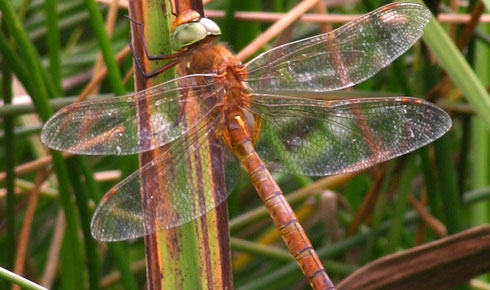
Aeshna isosceles the Norfolk Hawker dragonfly.
© R Norton & D Allen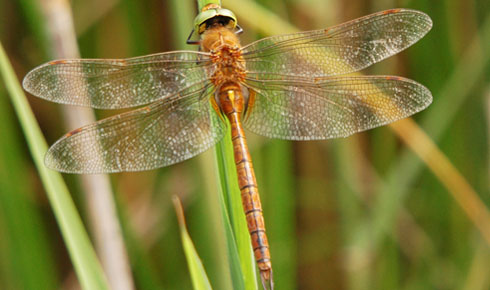
Aeshna isosceles Norfolk Hawker, Strumshaw Fen RSPB reserve.
© K Goodger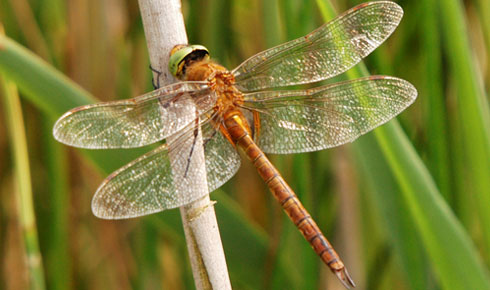
Aeshna isosceles Norfolk Hawker, Strumshaw Fen RSPB reserve.
© K Goodger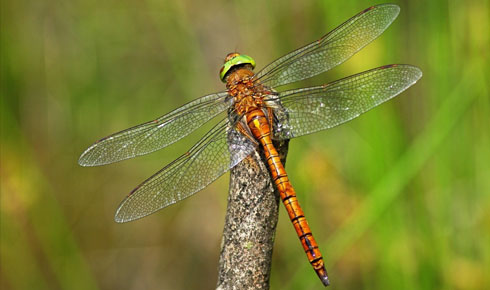
Aeshna isosceles the Norfolk Hawker dragonfly.
© R JurecekAuthor
David Goodger,
Curator, Department of Entomology.
A word from the author
'This is a very beautiful insect and well worth making the effort to see'
Toolbox
Glossary
Eutrophication is an increase in the nutrient content of a body of water.
